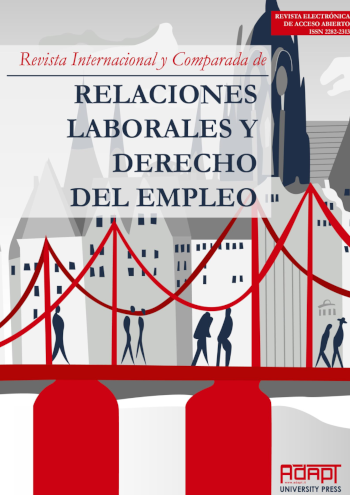Resumen
La prestación de servicios organizados a través de plataformas digitales ha de preservar, en todo caso, el carácter personal y relacional de la relación laboral. Sin embargo, en los nuevos modelos de trabajo de tipo colaborativo existe cierta pérdida del carácter personal de la relación laboral, siendo prácticamente indiferente si la persona encargada de efectuar el trabajo es sustituida por otra o incluso por los propios elementos tecnológicos. Además, nos encontramos con unos modelos de negocio que continuamente están cambiando debido a la evolución tecnológica, lo cual redunda en la ausencia de normas e instituciones indispensables para mantener una situación con cierta seguridad jurídica. En este trabajo reflexionaremos sobre los nuevos modelos de “trabajo colaborativo” en los que parece atribuirse poca relevancia al ser humano que presta el servicio (el trabajador), ocasionando que sea más importante vender el servicio y obtener unas ganancias. Esta situación resulta desalentadora para el propio Derecho del Trabajo que siempre ha perseguido priorizar al trabajador para que no sea considerado como una mera “mercancía”.
The provision of organised services through digital platforms must, in any case, preserve the personal and relational nature of the employment relationship. However, in the new collaborative working models there is a certain loss of the personal character of the working relationship, it being practically indifferent whether the person in charge of carrying out the work is replaced by another person or even by the technological elements themselves. In addition, we find business models that are continually changing due to technological evolution, which results in the absence of essential rules and institutions to maintain a situation with some legal certainty. In this paper we will reflect on the new models of “collaborative work” in which little relevance seems to be attributed to the human being who provides the service (the worker), causing it to be more important to sell the service. This situation is discouraging for the Labour Law itself, which has always sought to prioritize the worker so that he is not considered as a mere “merchandise”.

